6 simple tricks to help you stop snoring tonight
Hint: Your sleep position can make a big difference.
Updated on July 11, 2024
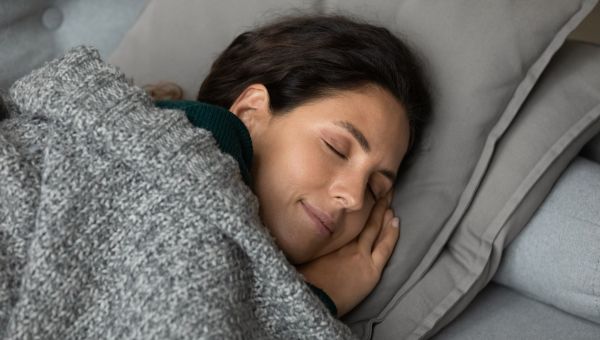
Odds are, you or someone you love snores. Experts believe about 90 million American adults snore occasionally. Another 37 million snore regularly.
Snoring is often caused by the constriction of air flow in and out of your nose, throat, and mouth. It's influenced by factors like:
- Anatomy
- Alcohol intake
- Weight
- Sleeping position
Occasional snoring may be a nuisance you can… Show More
Odds are, you or someone you love snores. Experts believe about 90 million American adults snore occasionally. Another 37 million snore regularly.
Snoring is often caused by the constriction of air flow in and out of your nose, throat, and mouth. It's influenced by factors like:
- Anatomy
- Alcohol intake
- Weight
- Sleeping position
Occasional snoring may be a nuisance you can live with, but consistent snoring can prevent you and your partner from feeling fully rested. Here are six things you can do to help stop snoring, starting tonight.
Show Less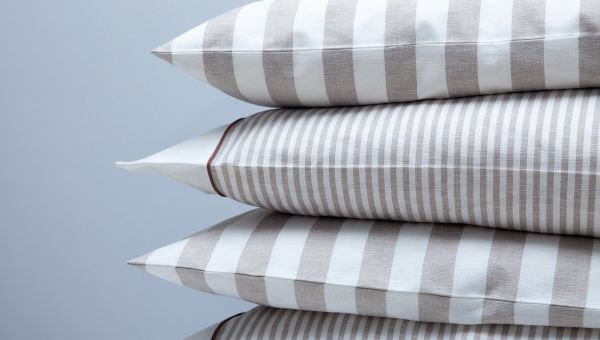
Raise your head
Laying your head flat while sleeping on your back can cause your tongue to roll back and block your throat. By elevating your head between 10 and 30 degrees, or about 4 inches from the bed, you can help relieve that obstruction. “If you sleep upright, it prevents that gravity-dependent collapse of… Show More
Laying your head flat while sleeping on your back can cause your tongue to roll back and block your throat. By elevating your head between 10 and 30 degrees, or about 4 inches from the bed, you can help relieve that obstruction. “If you sleep upright, it prevents that gravity-dependent collapse of the upper airway,” says Robin Elkus, MD, a pulmonologist with the Pulmonary and Sleep Wellness Center of Pontiac, Michigan.
Consider investing in another pillow or a wedge for a good night’s sleep. You can also talk with a healthcare provider (HCP) to determine what elevation method is best for you.
Show Less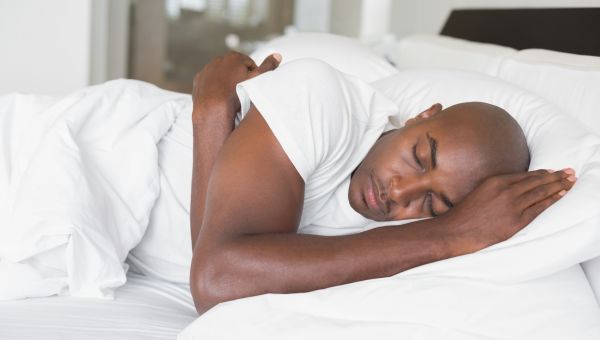
Sleep on your side
Sleeping on your stomach may reduce snoring for a while, but it could put extra pressure on your chest and upper body, worsening the issue. Instead, try sleeping on your side. This may help reduce snoring because it most effectively opens the airways.
“If you are a snorer or suffer from sleep apnea,… Show More
Sleeping on your stomach may reduce snoring for a while, but it could put extra pressure on your chest and upper body, worsening the issue. Instead, try sleeping on your side. This may help reduce snoring because it most effectively opens the airways.
“If you are a snorer or suffer from sleep apnea, the best position to sleep in is upright/elevated and on your side,” says Dr. Elkus. Bonus: Sleeping on your side lowers your chances of acid reflux, too.
If you change positions during the night and are unable to stay on your side consistently, consider placing pillows around you to help keep you in one position. Another trick is to sew a tennis ball into the back of a night shirt. This helps keep you off your back.
Show Less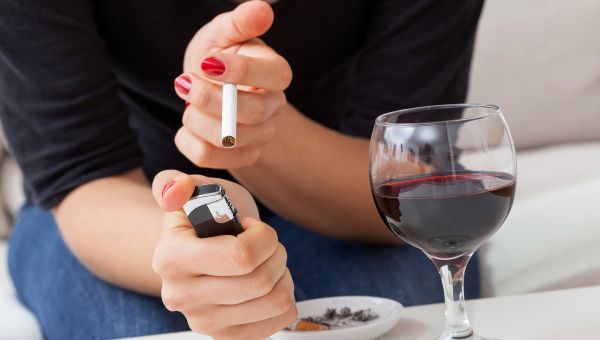
Avoid alcohol and smoking before bed
Lighting up or drinking alcohol before going to sleep is believed to contribute to snoring. “Smoking makes snoring and sleep apnea worse because smoking causes a lot of upper-airway inflammation,” says Elkus. “Alcohol is a muscle relaxer, so it will make the upper airway more floppy during sleep,”… Show More
Lighting up or drinking alcohol before going to sleep is believed to contribute to snoring. “Smoking makes snoring and sleep apnea worse because smoking causes a lot of upper-airway inflammation,” says Elkus. “Alcohol is a muscle relaxer, so it will make the upper airway more floppy during sleep,” increasing the chances of snoring.
That's not all. “It may help you fall asleep easier, but after it’s metabolized in three or four hours, alcohol can actually make your sleep worse and more fragmented,” says Elkus. "The first half of the night you probably sleep okay, but then the second half of the night after it's metabolized, people often wake up a lot and can't sleep." Try to abstain from drinking alcohol for four to five hours before bedtime to avoid disrupting your sleep.
Show Less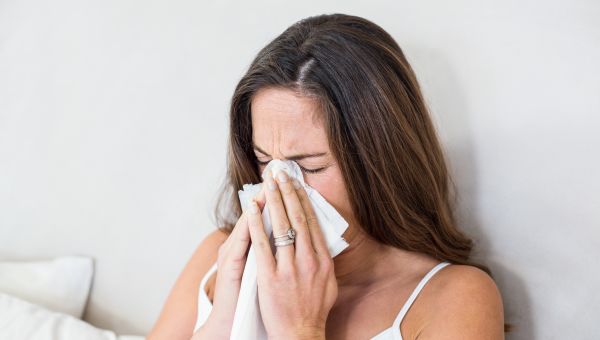
Clear your nose
When you‘re sick, a stuffy nose can become a breathing obstacle, making it harder for air to flow in and out. Clearing your nasal passages before bed makes it easier to breathe, which could lower your chances of snoring.
Blow your nose before going to sleep or consider using nasal strips to help… Show More
When you‘re sick, a stuffy nose can become a breathing obstacle, making it harder for air to flow in and out. Clearing your nasal passages before bed makes it easier to breathe, which could lower your chances of snoring.
Blow your nose before going to sleep or consider using nasal strips to help open the nasal passages. You could also invest in a humidifier, aiming to keep your bedroom's humidity level at about 50 percent. Saline nasal sprays and saline sinus rinses are safe and effective for nasal stuffiness and congestion, too.
Show Less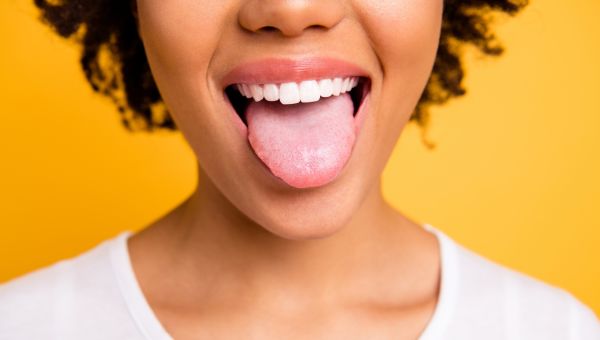
Get Some Specialized Exercise
Oropharyngeal exercises are exercises of the throat, mouth, and tongue. They may stop or lessen snoring, though more research is needed to confirm their effectiveness.
In a 2018 study published in European Archives of Otorhinolaryngology, researchers found that these exercises reduced… Show More
Oropharyngeal exercises are exercises of the throat, mouth, and tongue. They may stop or lessen snoring, though more research is needed to confirm their effectiveness.
In a 2018 study published in European Archives of Otorhinolaryngology, researchers found that these exercises reduced reported snoring in adults. Some benefit has appeared in lab sleep studies, as well. In obese people and those with sleep apnea, however, exercises haven’t been shown to be quite as effective at reducing snoring.
Oropharyngeal exercises may not work for everyone, and it may depend on how severe your snoring has become, according to a small 2022 study published in Sleep Science and a 2020 review in The Cochrane Database of Systematic Reviews.
Check with an HCP as to whether oropharyngeal exercises might work for you. If prescribed, you might do certain exercises on a regular basis, such as:
- Elevating the back of your mouth and saying “A”
- Pressing your tongue along the roof of your mouth, then sliding it backwards
Conventional exercise like yoga, swimming, or jogging can also benefit your sleep. They relieve stress, help you lose weight, and help you breathe more easily, all of which may help alleviate snoring.
Show Less
Maintain a healthy weight
Carrying extra weight around your airways can compress them, making it more difficult to breathe while you sleep. “Weight gain can cause snoring to worsen, but weight loss can help improve it,” says Elkus. “Weight loss for people with snoring and sleep apnea is always recommended.”
Regular daily… Show More
Carrying extra weight around your airways can compress them, making it more difficult to breathe while you sleep. “Weight gain can cause snoring to worsen, but weight loss can help improve it,” says Elkus. “Weight loss for people with snoring and sleep apnea is always recommended.”
Regular daily exercise is the single best way to improve the quality of sleep and should be part of a weight loss program, she adds. Consider starting a weight management regimen that includes eating a wholesome diet and exercising for approximately 30 minutes each day. An HCP can advise on a plan to help you achieve your goal.
Show Less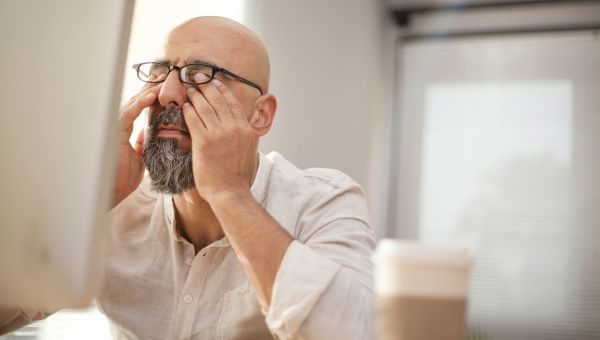
When to see an expert
Not all people who snore have sleep apnea, but snoring can be a symptom of this more serious condition. Sleep apnea causes you to stop breathing repeatedly through the night. It affects as many as 30 million people in the United States.
Sleep apnea requires the help of an HCP to assess treatment… Show More
Not all people who snore have sleep apnea, but snoring can be a symptom of this more serious condition. Sleep apnea causes you to stop breathing repeatedly through the night. It affects as many as 30 million people in the United States.
Sleep apnea requires the help of an HCP to assess treatment options, which can range from devices like continuous positive airway pressure (CPAP) breathing masks to surgery. “Untreated sleep apnea can cause other problems including increasing your risk for heart attacks, strokes, heart arrhythmia, and hypertension,” says Elkus.
If you or your partner notice a pause in your breathing during sleep, or loud snoring that sounds like choking or gasping, talk with an HCP today to find the best treatment.
Show Less
National Sleep Foundation. What Are the Common Causes of Snoring? November 12, 2020.
Yale Medicine. Snoring. Accessed on January 30, 2023.
Medline Plus. Snoring – adults. Page last reviewed July 19, 2021.
Medline Plus. Stuffy or runny nose – adult. Page last reviewed July 19, 2021.
Medline Plus. Humidifiers and health. Page last reviewed October 2, 2020.
Camacho M, Guilleminault C, Wei JM, et al. Oropharyngeal and tongue exercises (myofunctional therapy) for snoring: a systematic review and meta-analysis. Eur Arch Otorhinolaryngol. 2018 Apr;275(4):849-855.
Sperger T, Araujo ACF, Soares CFP. Effect of myofunctional therapy on snoring in obese patients: a randomized trial. Sleep Sci. 2022 Oct-Dec;15(4):421-428.
Rueda JR, Mugueta-Aguinaga I, Vilaró J, et al. Myofunctional therapy (oropharyngeal exercises) for obstructive sleep apnoea. Cochrane Database Syst Rev. 2020 Nov 3;11(11):CD013449.
Goswami, U et al. Smartphone-based delivery of oropharyngeal exercises for treatment of snoring: a randomized controlled trial. Sleep & breathing = Schlaf & Atmung. 2019;23(1):243-250.
Sunj, E. Mouth and Throat Exercises to Help Stop Snoring and Improve OSA. Sleep Foundation. Page last updated March 22, 2022.
U.S. Department of Health and Human Services. Physical Activity Guidelines for Americans, 2nd edition. 2019.
Berg, Sara. What doctors wish patients knew about sleep apnea. American Medical Association. April 1, 2022.
Ikpeze, Tochukwu. Sleep Apnea Treatments. The American Sleep Apnea Association. Page last updated December 2, 2022.
Ikpeze, Tochukwu. What is Sleep Apnea? The American Sleep Apnea Association. Page last updated September 29, 2022.
More On


video
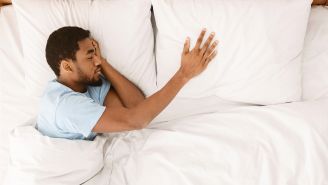
article
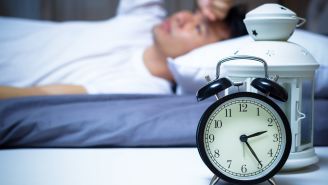
slideshow


video


video
